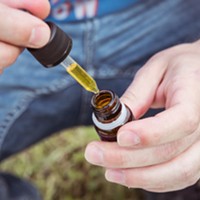Thursday, February 24, 2011
News Company pays government to challenge research
Posted By Rhiannon Fionn-Bowman on Thu, Feb 24, 2011 at 12:45 PM
Ummm ... what? As usual, money rules. Unfortunately, money can't fix everything once you've ruined it.
As the Cree Indians say, "When all the trees have been cut down, when all the animals have been hunted, when all the waters are polluted, when all the air is unsafe to breathe, only then will you discover you cannot eat money."
In an unusual scenario that raises questions of conflict of interest, a company that conducts research on behalf of the pesticide industry has paid a U.S. government agency to help prove some controversial chemicals are safe.The company, Exponent Inc., based in Menlo Park, Calif., is known for its scientific research on behalf of corporate clients facing product liability concerns. In this case, Exponent is trying to refute research showing that even a small amount of combined exposure to two agricultural chemicals, maneb, a fungicide, and paraquat, an herbicide, can raise the risk of Parkinson's disease, a progressive disorder of the central nervous system.
Exponent is listed as a member of CropLife America, the trade group that represents pesticide manufacturers, and also has worked regularly for Syngenta, which makes paraquat.
The federal agency involved in this instance is the National Institute for Occupational Safety and Health (NIOSH), a division of the Centers for Disease Control and Prevention. Federal ethics rules generally prohibit government employees from accepting money from businesses related to their jobs, which helps ensure that government staffers remain unbiased and free of corporate entanglements. Although NIOSH has statutory authority to accept 'gifts,' it does not "utilize" that authority to accept corporate donations for research, according to an agency spokeswoman.
Exponent was able to circumvent these restrictions, however, by donating $60,000 to the CDC Foundation, an independent, 501(c)(3) public charity. The foundation in turn passed the money along to NIOSH.
Exponent managing scientist Laura McIntosh said in an interview the company donated the money and sought participation by researchers at NIOSH to enhance the credibility of its study of maneb and paraquat. McIntosh said they wanted to make their research "bulletproof."
"We have a professional money-laundering facility at the Centers for Disease Control Foundation" said James O'Callaghan, the NIOSH researcher running the government's part of the project. "They accept projects from anyone on the outside."
Arthur Caplan, who runs the University of Pennsylvania Center for Bioethics, finds the arrangement disturbing. "If you have a private sector entity that has no interest and is just giving general money for support, that's not a conflict," Caplan said. But when a company or industry has "a stake in the outcome," or offers "support which is difficult to track, when it's not very transparent, it makes for trouble...I don't think every private dollar is tainted, but at the same time, when you're in areas where somebody has a dog in the fight, that's going to raise appropriate questions about conflicts."
Science-for-hire firms, Caplan says, must by nature be attentive to the needs of their corporate underwriters.
Read the entire Politics Daily piece, by Sheila Kaplan, here.
Speaking of...
-

The Moffett Restaurant Group Celebrates the 20th Anniversary of Barrington’s Restaurant
Oct 12, 2020 -
Cancer's better with a side of 'shrooms
Aug 7, 2020 -

CBD and its Benefits
May 11, 2020 - More »
Latest in The CLog
More by Rhiannon Fionn-Bowman
-
Cancer's better with a side of 'shrooms
Aug 7, 2020 -

The Last Mountain will move viewers
Aug 4, 2011 -
Government's mixed message for women
Aug 2, 2011 - More »








